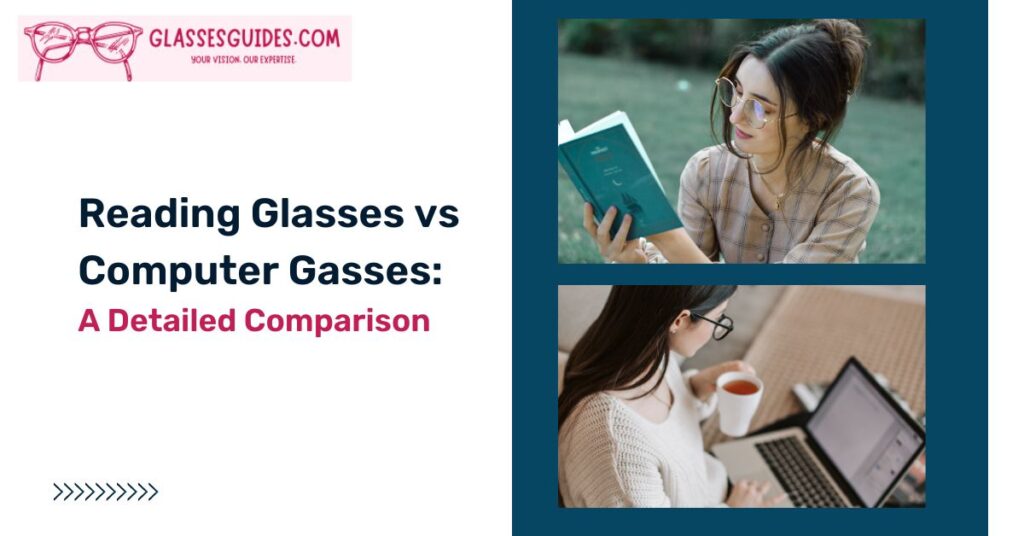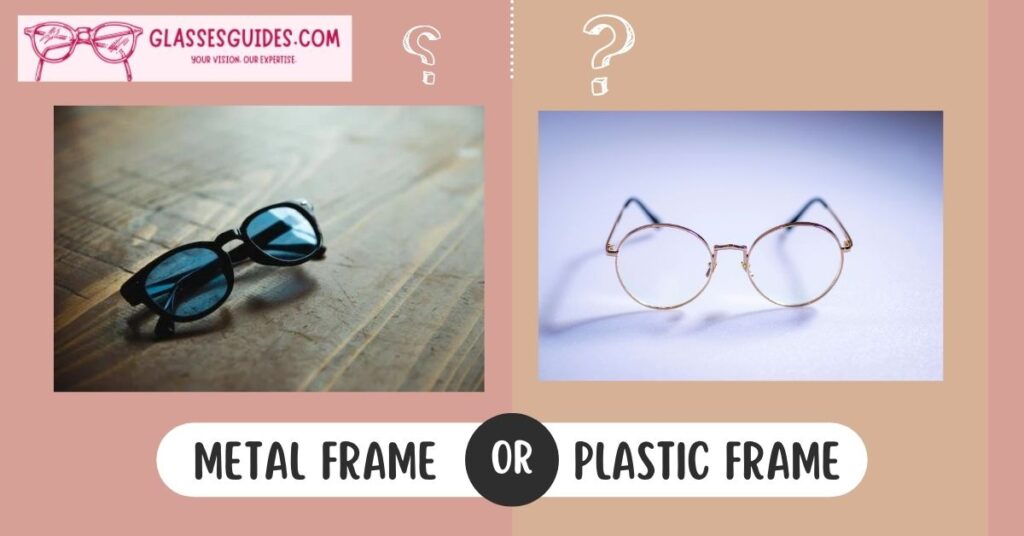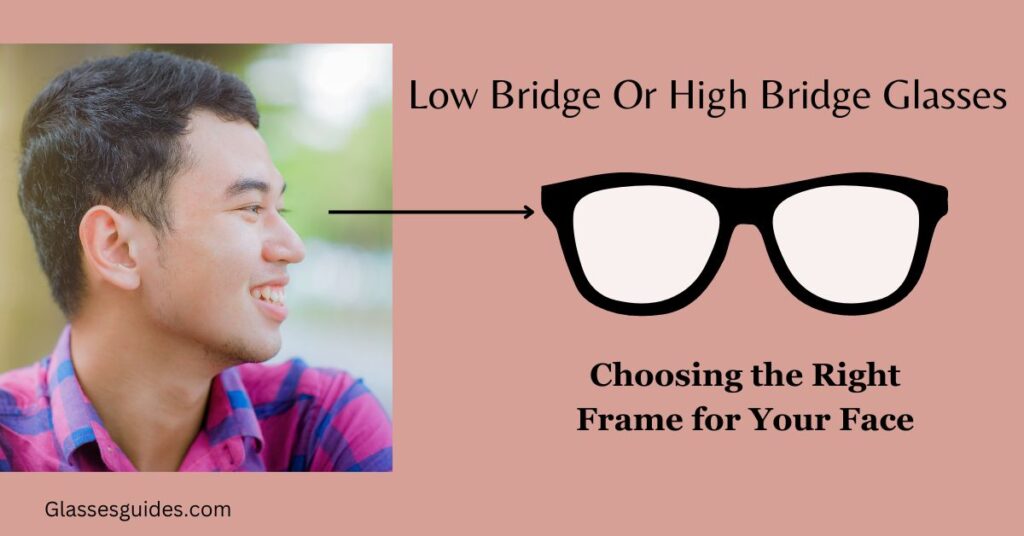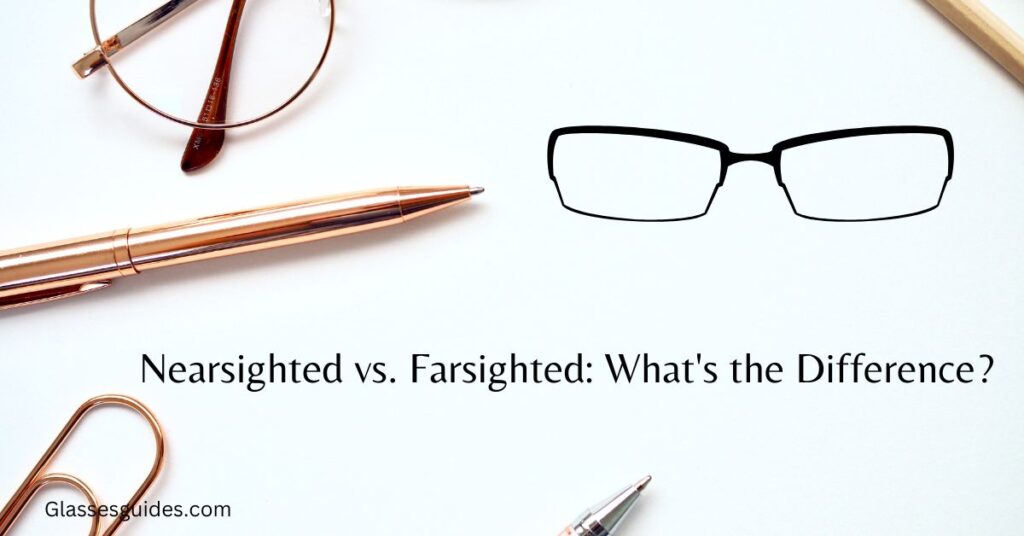In our examination of eyewear, we delve into the details of two vital companions for daily visual tasks: reading glasses and computer glasses. Navigating the intricacies of choosing the right eyewear reveals that understanding the purpose and nuances of each type is crucial.
In this detailed comparison of Reading glasses vs Computer Glasses, we’ll shed light on what sets them apart, aiding you in making informed decisions about the eyewear that best suits your unique needs. So, let’s explore the specifics to find the perfect pair of glasses for your eyes.
Table of Contents
let’s see a table comparison between Reading vs glasses computer glasses
| Aspect | Reading Glasses | Computer Glasses |
|---|---|---|
| Purpose | Designed for close-up tasks like reading. | Tailored for prolonged use of digital screens. |
| Lens Power | Specific power for short-distance focus. | May have anti-reflective coatings and magnification. |
| Optimal Distance | Short distance (e.g., reading a book). | Intermediate distance (computer monitor, smartphones). |
| Features | Focus on clear vision for close tasks. | Anti-reflective coatings, blue light filtering, etc. |
| Eye Strain Reduction | Limited for prolonged screen use. | Aimed at reducing digital eye strain and fatigue. |
| Usage Recommendation | Ideal for reading and close-up activities. | Recommended for those spending extended time on screens |
| Prescription Need | May or may not require a prescription. | Prescription may be needed, especially for prolonged use. |
| Multifocal Options | Some are designed for both intermediate and near vision. | Some designed for both intermediate and near vision. |
It’s now time for a Detailed Comparison
We unravel the distinct features and purposes of each, helping you make an informed choice tailored to your unique needs.
Understanding Reading Glasses
- Lens Power: Reading glasses come with a specific lens power optimized for short-distance viewing. This power helps in bringing close-up objects into clear focus, reducing the strain on your eyes during tasks like reading a novel or deciphering a recipe.
- Optimal Distance: Their sweet spot lies in the short-distance realm, making them perfect for activities where you need a little extra help seeing things up close.
- Features: While they excel at bringing clarity to close tasks, reading glasses typically lack features catering to the challenges posed by prolonged screen use. This makes them less suitable for activities like working on a computer or scrolling through your favorite articles on a tablet for extended periods.
A Look Inside Computer Glasses
- Purpose: Computer glasses are not just about improving vision; they are a shield against the digital strains that can accompany prolonged exposure to screens. Whether you’re working on a computer, binge-watching your favorite series, or scrolling through social media on your phone, computer glasses are designed to reduce eye strain and discomfort associated with extended screen time.
- Lens Design: Unlike reading glasses, which focus on short-distance clarity, computer glasses are engineered for intermediate distances. This means they are optimized for the typical viewing distance of computer monitors, smartphones, and tablets.
- Features: One of the key features of computer glasses is the inclusion of anti-reflective coatings. These coatings minimize glare and reflections from screens, providing a more comfortable viewing experience. Some computer glasses also incorporate blue light filtering technology, helping to reduce potential disruptions to sleep patterns caused by prolonged exposure to blue light emitted by screens.
- Eye Strain Reduction: The design and features of computer glasses work together to combat digital eye strain. By optimizing vision for screen usage and mitigating the effects of glare and blue light, they aim to keep your eyes comfortable during those marathon work sessions or late-night scrolling sessions.
Key Differences

While both serve the essential purpose of enhancing vision, their distinct features cater to different visual needs. Let’s explore the notable differences:
1. Purpose
- Reading Glasses: Primarily designed for close-up tasks like reading and other activities requiring short-distance focus.
- Computer Glasses: Tailored for individuals who spend extended periods in front of digital screens, addressing the challenges of intermediate-distance vision.
2. Lens Power
- Reading Glasses: Come with a specific lens power optimized for short-distance viewing, making nearby objects clearer.
- Computer Glasses: These may include a slight magnification and anti-reflective coatings to enhance vision at the distance of computer screens.
3. Optimal Distance
- Reading Glasses: Ideal for tasks at a short distance, such as reading a book or doing intricate work up close.
- Computer Glasses: Optimized for the intermediate distance associated with computer monitors, smartphones, and tablets.
4. Features
- Reading Glasses: Focus on providing clear vision for close tasks, but may lack features for addressing digital eye strain.
- Computer Glasses: Often equipped with anti-reflective coatings and, in some cases, blue light filtering technology to reduce eye strain during prolonged screen use.
5. Eye Strain Reduction
- Reading Glasses: Limited in addressing eye strain related to digital screens, as they are primarily designed for short-distance activities.
- Computer Glasses: Aim to reduce digital eye strain by optimizing vision for screens and incorporating features that minimize glare and filter out potentially harmful blue light.
6. Usage Recommendation
- Reading Glasses: Ideal for reading and other close-up activities.
- Computer Glasses: Recommended for those spending extended time on digital devices, offering comfort during prolonged screen use.
7. Prescription Need
- Reading Glasses: May or may not require a prescription, depending on individual eyesight needs.
- Computer Glasses: Prescription may be recommended, especially for those with specific vision requirements during prolonged screen use.
Who Chooses Reading Glasses?

For those who find themselves straining to see small print, having trouble understanding words on a page, or having to hold a menu at arm’s length to make sense of what’s being offered, reading glasses are their go-to friends. Presbyopia, or the age-related loss of near vision, usually affects people who are best suited for reading glasses.
Around the age of 40, presbyopia usually begins to manifest, making activities like reading books, menus, and crafting more difficult. You’re among a large and diverse group of people who appreciate the improved vision that reading glasses provide for their daily duties if you find yourself reaching for them to bring clarity to these close-up activities.
Who Chooses Computer Glasses?

The people who spend a considerable portion of their day engrossed in the glow of screens are known as digital residents. Professionals, students, and anybody else who uses digital gadgets for work or play find a home for computer glasses. If you find yourself trawling through social media, creating reports, binge-watching shows, or managing spreadsheets, computer glasses may be screaming your name.
They serve those who are battling digital eye strain, which manifests as headaches, impaired vision, and eye fatigue following extended periods of screen use. In other words, computer glasses might be the visual aid you’ve been looking for if your everyday activities include a digital dance and your eyes ache for relief from the glare and strain.
Benefits of Reading and computer glasses
Benefits of Reading Glasses
- The Clarity for Close-Up Activities: The primary benefit of reading glasses lies in providing crystal-clear vision for close-up tasks. Whether you’re engrossed in a novel, perusing a menu, or working on intricate crafts, reading glasses enhance your ability to see and enjoy these activities without straining your eyes.
- Presbyopia Relief: For those experiencing presbyopia, a natural age-related decline in near vision, reading glasses offer a practical solution. They compensate for the eye’s diminished ability to focus on close objects, making reading and other short-distance tasks more comfortable.
- Versatility in Styles: Reading glasses come in a variety of styles, from classic to trendy frames. This not only enhances your visual experience but also allows you to express your personality through fashionable eyewear.
- Convenience and Accessibility: Reading glasses are often available over the counter, making them easily accessible. Their affordability and convenience make them a practical choice for many individuals who need occasional assistance with close-up vision.
Benefits of Computer Glasses
- Reduced Digital Eye Strain: The standout benefit of computer glasses is their ability to alleviate digital eye strain. By incorporating features like anti-reflective coatings and blue light filtering technology, these glasses reduce the discomfort caused by prolonged exposure to screens, minimizing symptoms like headaches and eye fatigue.
- Optimized Vision for Screens: Computer glasses are specifically designed for the intermediate distance associated with digital screens. This ensures that your eyes maintain comfortable focus during extended periods of computer work, gaming, or browsing, enhancing overall visual comfort.
- Minimized Glare and Reflections: Anti-reflective coatings on computer glasses mitigate glare and reflections from screens. This not only improves visibility but also prevents unnecessary eye strain caused by harsh lighting conditions.
- Potential Sleep Benefits: Blue light filtering technology in some computer glasses may contribute to better sleep hygiene. By reducing the exposure to blue light emitted by screens, especially during evening use, these glasses may help mitigate disruptions to circadian rhythms and promote better sleep.
Importance of Professional Eye Examination
Here’s why a professional eye examination is indispensable:
- Accurate Prescription: Optometrists are trained to conduct a series of tests that precisely determine your visual acuity and any refractive errors. This information is essential for prescribing the correct power for your glasses, whether they be reading glasses, computer glasses, or multifocal lenses.
- Identification of Eye Conditions: Professional eye exams can uncover underlying eye conditions, such as glaucoma, cataracts, or macular degeneration, which may not have noticeable symptoms in the early stages. Early detection is crucial for timely treatment and preserving your vision.
- Individualized Eye Care: Eyes are unique, and their health can be influenced by various factors. Optometrists tailor their recommendations based on your specific needs, considering factors like lifestyle, occupation, and any existing eye health issues.
- Detection of Systemic Health Issues: The eyes can offer insights into your overall health. Conditions like diabetes and hypertension may manifest signs in the eyes, and an eye examination can sometimes lead to the early identification of systemic health issues.
- Optimization of Visual Comfort: Beyond prescribing glasses, eye professionals can offer guidance on maintaining visual comfort. They can recommend specialized coatings or tints for lenses, ensuring your eyewear addresses specific challenges, such as reducing glare or improving contrast.
- Update on Technological Advances: Eye care professionals stay abreast of the latest technological advancements in eyewear and vision correction. During an eye examination, you can learn about new options that may enhance your visual experience, such as progressive lenses or lens coatings designed for digital screen use.
- Guidance on Eyewear Choices: Based on your prescription and lifestyle, optometrists can guide you in choosing the most suitable eyewear. Whether you need reading glasses, computer glasses, or multifocal lenses, their expertise ensures that your glasses meet your visual requirements.
Personal Considerations in Choosing Eyewear
Here are some personal considerations to keep in mind when deciding between reading glasses and computer glasses:
- Daily Activities
- Reading Glasses: Ideal if your daily activities involve a significant amount of reading, crafting, or other close-up tasks.
- Computer Glasses: Suitable if you spend extended hours working on a computer, gaming, or frequently using digital devices.
- Combined Needs: If your daily routine involves both reading and prolonged screen use, consider multifocal glasses that cater to both short-distance and intermediate-distance vision.
- Style and Comfort: Consider the aesthetics and comfort of the frames. Choose eyewear that complements your style and feels comfortable for extended wear.
- Prescription Requirements: Check if you have a specific prescription that necessitates either reading glasses, computer glasses, or a combination of both.
- Outdoor Activities: If you spend a significant amount of time outdoors, consider sunglasses with prescription lenses to protect your eyes from UV rays.
- Preexisting Eye Conditions: Individuals with specific eye conditions, such as astigmatism or presbyopia, may require specialized lenses. Consult with your eye care professional for tailored solutions.
- Budget: Evaluate your budget for eyewear. Reading glasses are often more budget-friendly, while computer glasses, especially with additional features, may have a higher cost.
- Consultation with an Eye Care Professional: Schedule regular eye exams to ensure that your eyewear prescription is up-to-date. Consult with an eye care professional to address any changes in your vision or eye health.
- Digital Habits: Assess your digital habits. If you frequently experience digital eye strain, computer glasses with features like anti-reflective coatings and blue light filtering may be beneficial.
- Preference for Convenience: Consider the convenience of over-the-counter reading glasses versus prescription computer glasses. Decide based on what aligns with your preference and lifestyle.
Conclusion
In terms of choosing eyewear, the balance between Reading glasses and Computer Glasses hinges on understanding the intricacies of our visual needs and daily routines. With their specialized lens power, reading glasses are invaluable for close-up work and the world of books. In the meantime, the advent of computer glasses which are purposefully made to lessen the strains associated with extended screen time has brought about the digital age.
Recognizing the little advantages that each kind offers is essential as we travel the landscapes of pixels and pages. While computer glasses act as digital protectors, lowering eye strain and improving vision for activities using screens, reading glasses improve clarity for reading and close work.
The best option depends on your way of life, routine, and the particular challenges your eyes face when reading and watching displays. Thus, let your eyewear be the ideal companion, tailored to your unique visual experience of Reading Glasses vs. Computer Glasses, whether you choose to hide behind a book or dive into the glow of screens.
FAQ on Reading Glasses vs Computer Glasses
Do computer glasses have magnification like reading glasses?
Yes, some computer glasses may have a slight magnification, but it is generally lower than the magnification in reading glasses. The goal of computer glasses is to optimize vision for the intermediate distance of computer screens without causing discomfort during prolonged use.
Can I wear multifocal glasses instead of separate reading and computer glasses?
Multifocal glasses, such as progressive lenses, are designed to address different vision needs in a single pair. They offer a seamless transition between reading, intermediate, and distance vision, making them a convenient option for individuals with diverse visual requirements.
Can I use reading or computer glasses without a prescription?
Reading glasses are often available over-the-counter and can be used without a prescription for individuals with mild presbyopia. However, computer glasses, especially those with specific features, may benefit from a prescription for optimal vision correction and eye comfort.
Do computer glasses protect against blue light?
Many computer glasses come with blue light filtering technology, which can help reduce exposure to potentially harmful blue light emitted by screens. This feature aims to alleviate digital eye strain and may contribute to better sleep hygiene, especially if you use screens in the evening.



